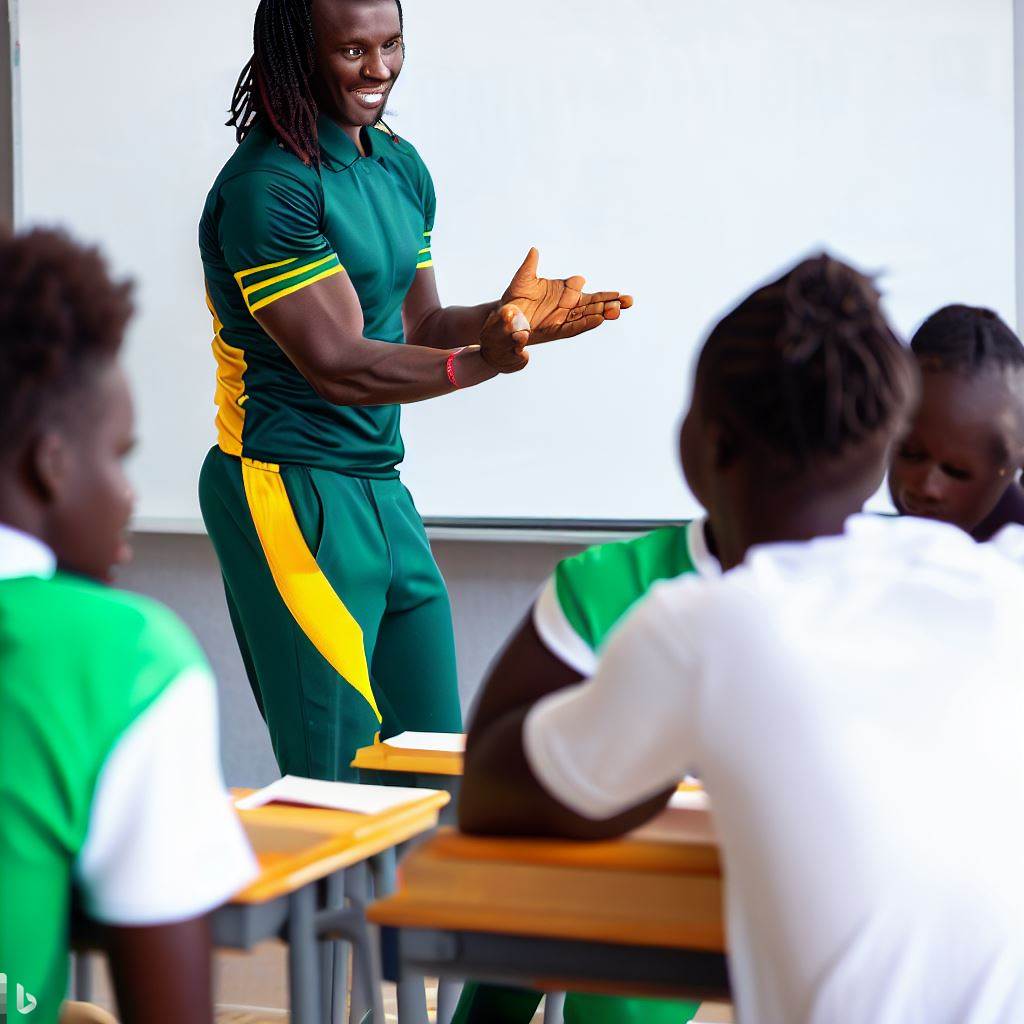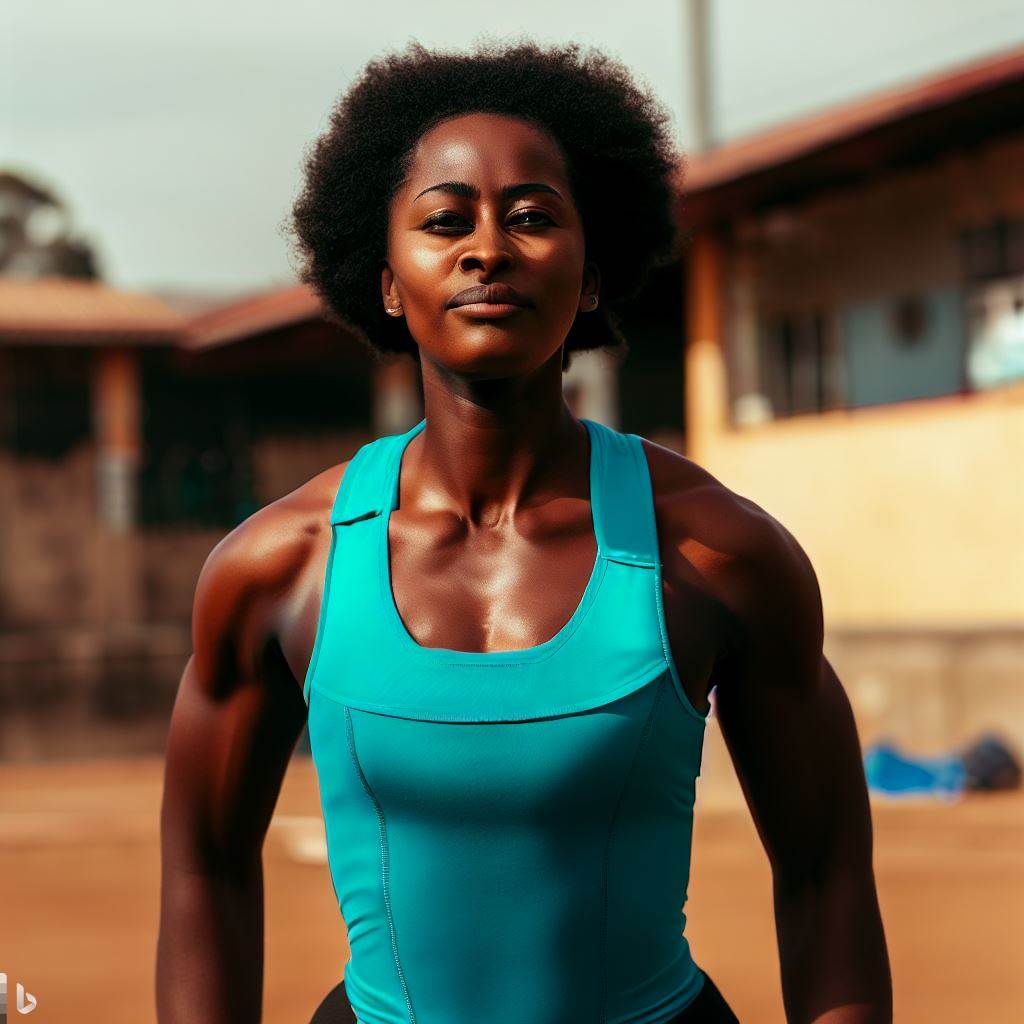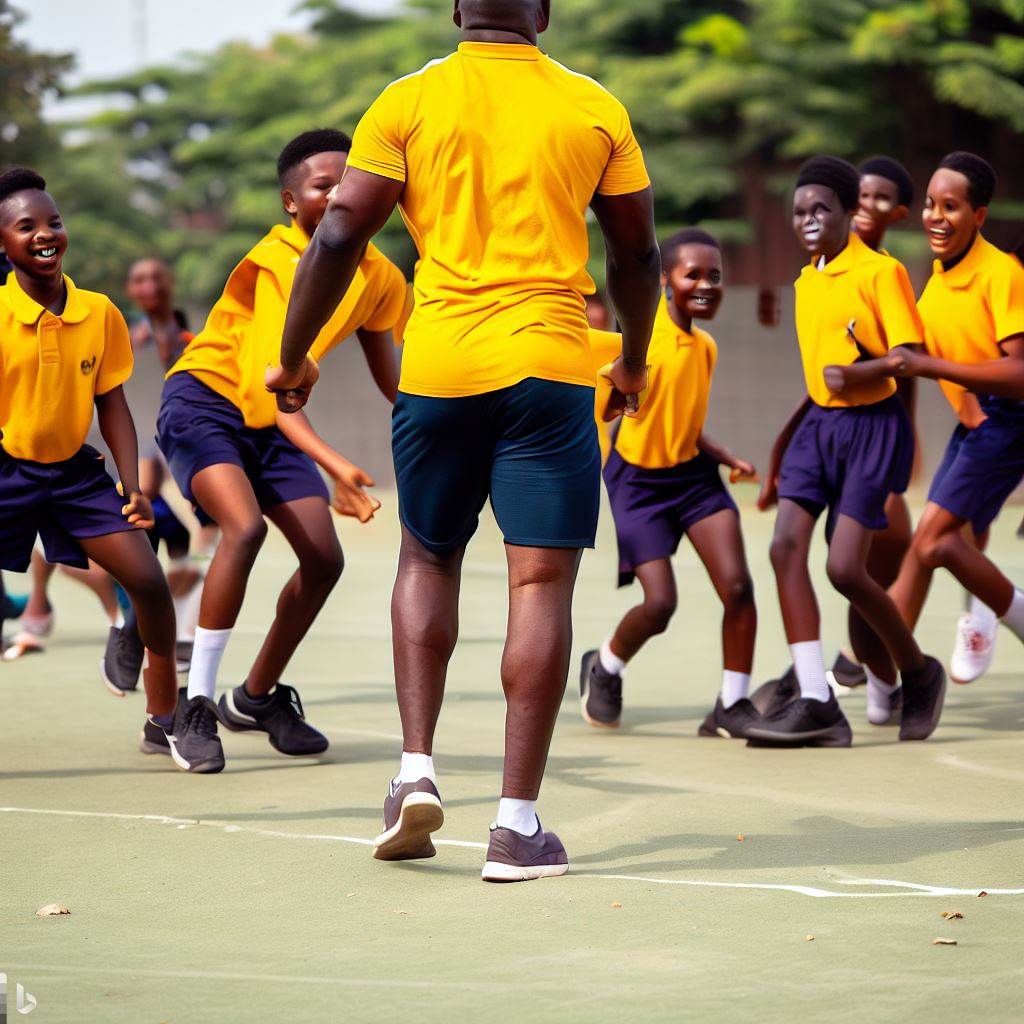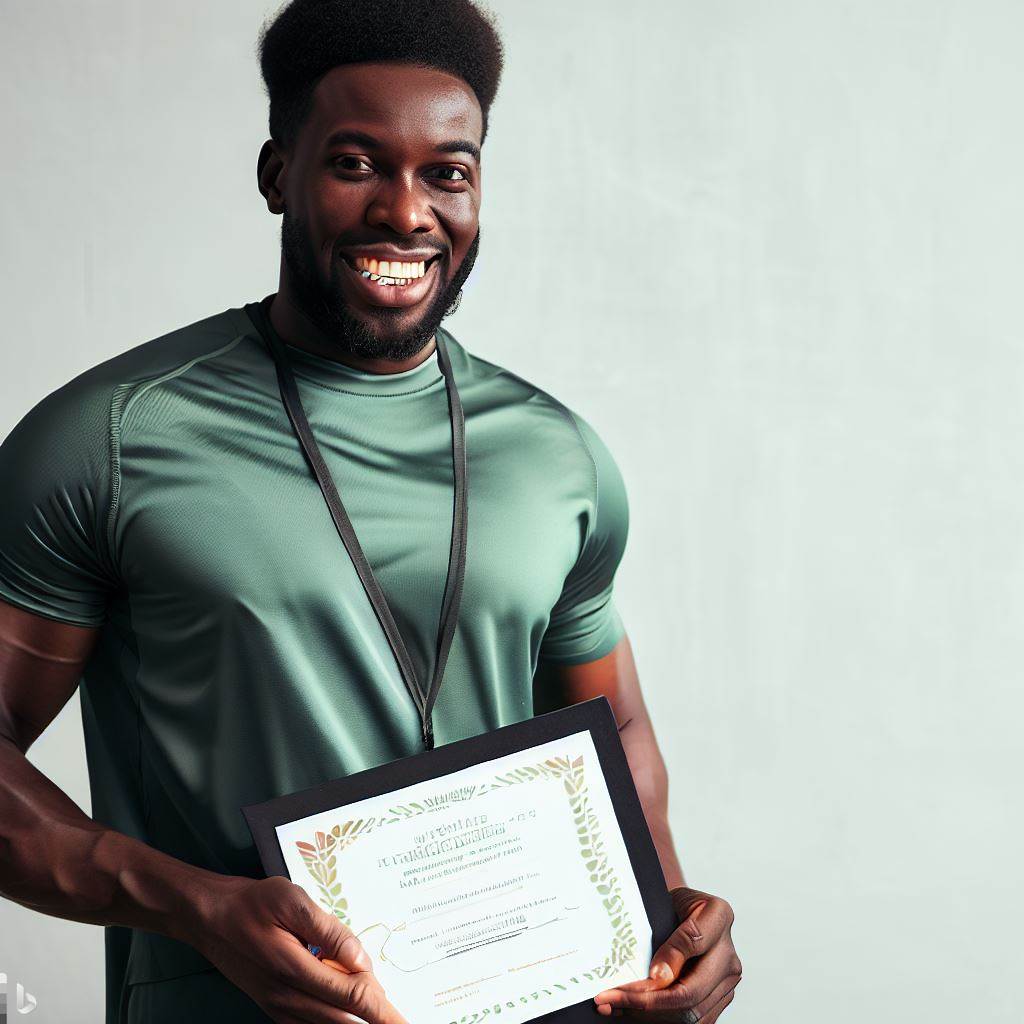Introduction
Continuing education for athletic trainers in Nigeria is crucial for their professional development and the overall improvement of sports medicine in the country.
Currently, athletic training in Nigeria is lagging behind due to various challenges.
This section will discuss the need for continuing education, the current state of athletic training, and the lack of opportunities for further learning.
Athletic trainers play a vital role in preventing and treating sports-related injuries, ensuring the well-being of athletes.
Continuing education allows them to stay updated with the latest techniques, research, and advancements in their field. It sharpens their skills and enhances their ability to provide quality care to athletes.
In Nigeria, the field of athletic training is still emerging and faces several challenges.
Limited resources, outdated equipment, and a lack of standardized protocols hinder the progress of sports medicine.
Moreover, there is a lack of recognition for athletic trainers as qualified healthcare professionals, which affects opportunities for growth and career advancement.
One major hurdle for athletic trainers in Nigeria is the scarcity of continuing education opportunities.
There is a lack of specialized courses or workshops designed specifically for their professional development.
This limits their access to the latest knowledge, best practices, and networking opportunities that are essential for their growth.
In essence, continuing education is essential for athletic trainers in Nigeria to improve their skills, enhance the field of sports medicine, and ensure the well-being of athletes.
The current state of athletic training in the country is hindered by various challenges, including limited resources and a lack of recognition.
It is crucial to address these issues and create more opportunities for continuing education in order to elevate the standard of athletic training in Nigeria.
The Need for Continuing Education
Continuing education for athletic trainers in Nigeria is crucial due to the ever-evolving nature of healthcare and sports medicine.
Transform Your Career in Nigeria
Discover unmatched expertise with our personalized Career Consulting service. Navigate Nigeria’s job market with a strategy tailored just for you.
Get StartedIt is essential for these professionals to stay updated with the latest techniques and research to provide the best care possible to their athletes.
A. The ever-evolving nature of healthcare and sports medicine
Healthcare and sports medicine are dynamic fields that constantly undergo advancements and changes.
New research and technology are continuously emerging, leading to improved techniques and treatments.
This evolution is driven by the desire to enhance performance, prevent injuries, and promote overall well-being in athletes.
Athletic trainers must recognize the importance of keeping up with these developments to provide optimal care and support to their athletes.
Failure to do so may result in outdated practices and inefficient treatment methods.
B. How continuing education helps athletic trainers stay updated
Continuing education programs provide athletic trainers with opportunities to gain new knowledge, acquire advanced skills, and refine their existing expertise.
These programs offer a platform for trainers to learn about the latest research findings, treatment methods, and technological advancements relevant to their field.
By participating in continuing education courses, athletic trainers can stay updated with the most recent evidence-based practices.
They can learn about innovative rehabilitation techniques, injury prevention strategies, and performance enhancement methods.
Such knowledge is vital to ensuring athletes receive the highest quality care and achieve their full potential.
C. The potential impact of staying stagnant in the field
Choosing not to engage in continuing education can have negative consequences for athletic trainers and their athletes.
Stagnation in the field hinders professional growth and limits the ability to provide effective and up-to-date care.
Without continuous learning and skill development, trainers may rely on outdated practices or misinformation.
This can compromise the quality of care, increase the risk of injury, and impede athletes’ recovery process.
Furthermore, staying stagnant may lead to a loss of professional relevance and a reduction in career opportunities.
Athletic trainers who fail to adapt to advancements in their field may be overshadowed by those who actively pursue continuing education and incorporate new techniques into their practice.
In general, continuing education is crucial for athletic trainers in Nigeria. It enables them to stay updated with the ever-evolving nature of healthcare and sports medicine.
By actively engaging in continuing education, trainers can enhance their knowledge, skills, and techniques to provide optimal care and support to their athletes.
Failure to do so can result in stagnant practices and potential harm to athletes’ well-being.
Thus, it is essential for athletic trainers in Nigeria to prioritize continuing education to stay at the forefront of their field.
Read: The Future of Athletic Training in Nigeria: Expert Insights
Challenges Faced by Athletic Trainers in Nigeria
A. Limited Resources and Access to Educational Opportunities
- Nigerian athletic trainers face significant challenges due to limited resources and access to educational opportunities.
- The lack of well-equipped training facilities hampers their ability to receive proper education and practical training.
- Athletic trainers often struggle to access the necessary textbooks, research materials, and technological resources.
- This scarcity of resources poses a significant barrier to their professional development and ability to deliver quality care.
- A lack of funding and investment in athletic training programs further exacerbates these challenges.
B. Lack of Investment in Professional Development for Trainers
- Athletic trainers in Nigeria face a dearth of investment in their professional development.
- Many trainers are unable to participate in conferences, workshops, and advanced training programs.
- The limited financial support provided by institutions and organizations restricts their growth opportunities.
- Without continuous learning and skill enhancement, athletic trainers struggle to stay updated with the latest developments in their field.
- The lack of investment not only negatively affects the trainers’ career progression but also impacts the overall quality of healthcare available to athletes.
C. Need for Government and Private Support
- The challenges faced by athletic trainers in Nigeria can only be overcome through increased government and private support.
- The government should allocate adequate funds to establish and maintain well-equipped training facilities.
- Collaboration between educational institutions and private organizations can help provide necessary resources and scholarships.
- Professional associations and governing bodies should advocate for policies that prioritize the development of athletic trainers.
- Additionally, stakeholders in the sports industry need to recognize the indispensable role of athletic trainers and invest in their professional growth.
Overall, athletic trainers in Nigeria face numerous challenges, including limited resources and access to educational opportunities, a lack of investment in their professional development, and the need for government and private support.
These challenges hinder their ability to provide quality care to athletes and impede the overall progress of athletic training in the country.
Publish Your Professional Profile, Business or Brand
Showcase your expertise, gain trust, and boost visibility instantly on Professions.ng.
Publish NowTo overcome these obstacles, it is crucial for the government, educational institutions, private organizations, and the sports industry to come together and invest in the growth and professional development of athletic trainers.
By providing adequate resources, funding, and support, Nigeria can improve the state of athletic training and ultimately enhance the well-being of athletes.
Read: Nigeria’s Assistant Coach Success Stories in 2022

Importance of Collaboration
Collaboration plays a significant role in the development and enhancement of continuing education for athletic trainers in Nigeria.
By emphasizing the importance of collaboration among athletic trainers, universities, and sports organizations, the access to quality continuing education can be increased.
Additionally, looking at successful collaboration models in other countries can serve as inspiration for Nigeria’s athletic training community.
A. Importance of collaboration among athletic trainers, universities, and sports organizations
In the field of athletic training, collaboration is vital as it fosters the sharing of knowledge, resources, and experiences between different stakeholders.
By working together, athletic trainers, universities, and sports organizations can effectively address the evolving needs of the profession and ensure the continuous improvement of athletes’ health and performance.
Collaboration creates a supportive network that promotes growth and innovation within the athletic training community.
B. How partnerships can increase access to quality continuing education
Partnerships between athletic trainers, universities, and sports organizations can significantly enhance the accessibility of quality continuing education programs.
By pooling their expertise and resources, these entities can develop comprehensive and tailored educational opportunities for athletic trainers.
Collaborative efforts can result in the creation of specialized courses, workshops, and conferences that meet the specific needs and challenges faced by athletic trainers in Nigeria.
This, in turn, ensures the continuous professional development of trainers and promotes optimal healthcare for athletes.
C. Examples of successful collaboration in other countries
Several countries have witnessed the positive impact of collaboration among athletic trainers, universities, and sports organizations on continuing education.
These examples can serve as inspiring models for Nigeria’s athletic training community:
- United States: In the United States, the National Athletic Trainers’ Association (NATA) collaborates with universities, professional sports organizations, and industry experts.
This collaboration has resulted in the development of evidence-based continuing education programs, research initiatives, and advancements in sports medicine practices. - Australia: Australia’s collaboration between the Australian Sports Commission, universities, and governing bodies has led to the establishment of the Australasian College of Sports Physicians.
This collaboration has facilitated the delivery of specialized education and training programs for sports physicians, including athletic trainers, ensuring that they stay updated with the latest advancements in sports medicine. - United Kingdom: The United Kingdom’s collaboration between the British Association of Sport and Exercise Sciences (BASES), universities, and professional sports organizations has resulted in the establishment of centers of excellence for sports science and athletic training.
These examples demonstrate the positive outcomes that can be achieved through collaboration in the field of athletic training.
Nigeria’s athletic trainers can draw inspiration from these successful models and foster similar partnerships domestically to improve continuing education opportunities and elevate the quality of care provided to athletes in the country.
Read: Athletic Trainer Equipment in Nigeria: What You’ll Need
Solutions and Recommendations
Continuing education empowers Nigerian athletic trainers’ growth. Employ online platforms for remote learning, remove geographical barriers.
Partner with global organizations, learn best practices. Offer scholarships, aid financially constrained trainers. Collaborate academically and professionally, align with industry needs.
Professional groups and regulators champion ongoing learning. Advocate its importance, enforce mandatory education standards.
Conduct local workshops, reach diverse audiences. Engage local and global experts, broaden perspectives. Network with leaders, peers, stay current. Reward participation with education credits.
Enhancing access to education is crucial. Utilize online tools, global partnerships, financial aid, academic-professional collaboration, regulation enforcement, workshops, and networking.
Nigerian athletic trainers must stay updated to deliver top-notch care.
Read: Career Growth in Athletic Training in Nigeria: A Detailed Look
Conclusion
Continuing education for athletic trainers in Nigeria is of utmost importance.
By staying updated with the latest advancements and techniques in sports medicine, trainers can provide better care for athletes.
It is vital for trainers and stakeholders to take action and prioritize the education of the athletic training workforce in the country.




